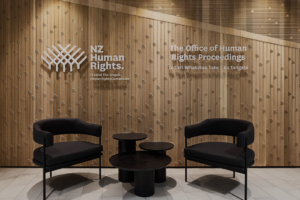This MK Law’s guide aims to provide you with a clear understanding of the human rights landscape in New Zealand, highlighting the legal protections and avenues for addressing rights violations.
What are Human Rights?
Human rights are basic rights and freedoms that belong to every person in the world, from birth until death. They apply regardless of where you are from, what you believe, or how you choose to live your life. These rights are based on shared values like dignity, fairness, equality, respect, and independence. In New Zealand, these values are not just ideals but are enshrined in law.
 Legal Framework for Human Rights in New Zealand
Legal Framework for Human Rights in New Zealand
The New Zealand Bill of Rights Act 1990: This Act outlines the fundamental rights and freedoms of all individuals in the country. It includes civil and political rights such as freedom of expression, religion, and peaceful assembly, and the right to a fair trial.
The Human Rights Act 1993: This Act provides for the protection against discrimination in various areas including employment, housing, and access to services. It also establishes the Human Rights Commission, an independent commission that works to resolve complaints of discrimination and promote human rights education and awareness.
The Privacy Act 2020: This Act ensures the protection of personal information. It sets standards for how personal information is collected, used, disclosed, and stored, and provides individuals with the right to access and correct their information.
Human Rights Challenges in New Zealand
While New Zealand has a robust human rights framework, challenges remain. Issues such as discrimination, inequality, and privacy breaches still occur, and certain groups, including migrants and refugees, can face particular challenges. MK Law is committed to addressing these issues, providing legal support and advocacy to ensure that everyone’s rights are respected and protected.
Refugee Law of New Zealand
New Zealand’s approach to refugee law is rooted in a commitment to international human rights principles, guided by the 1951 Refugee Convention and its 1967 Protocol. As a nation that values fairness and compassion, New Zealand provides asylum to individuals who fear persecution in their home countries due to race, religion, nationality, membership in a particular social group, or political opinion. This legal framework not only defines who is recognised as a refugee but also outlines how a refugee claim is assessed in New Zealand. Through a comprehensive and personalised assessment, we ensure that those in need of protection are granted a safe haven, upholding the country’s longstanding tradition of supporting human rights and providing refuge to those in dire circumstances.
How MK Law Can Help
At MK Law, we specialise in human rights law and refugee law, and we are passionate about advocating for the rights and freedoms of all individuals. Whether you need assistance with a discrimination claim, privacy concerns, or any other human rights issue, our team is here to provide expert legal advice on how to make a refugee claim at the Refugee Status Branch or to make a complaint to the Human Rights Commission and to represent you at the Human Rights Review Tribunal.
You must be logged in to post a comment.